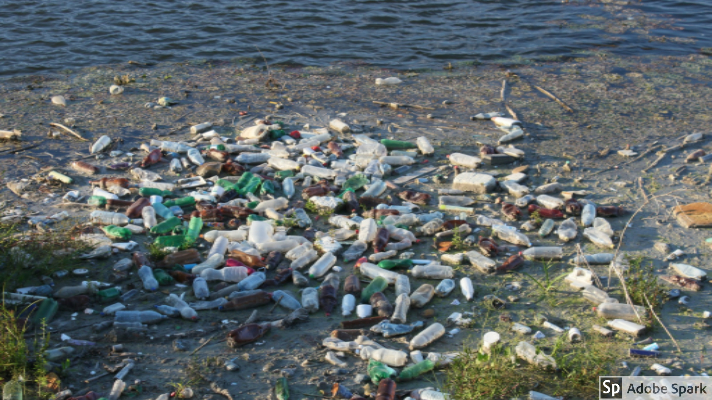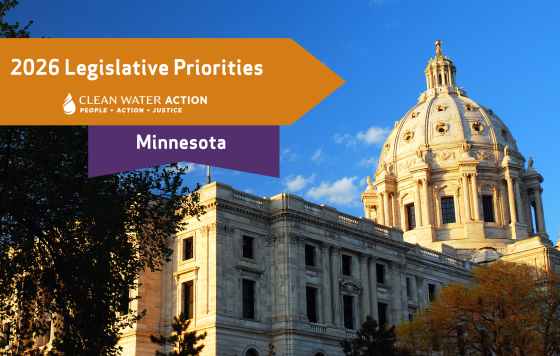
If you have read the news recently, you have probably seen an article or two about a recent study of the “Great Pacific Garbage Patch”. The articles report estimates of plastic pollution in the trillions, and swaths of plastic waste that are the size of countries.
Those numbers might make it feel like the issue is too massive to solve. You may be asking yourself, “how do we do something about a problem that is thousands of miles away?”
So, how can we wrap our heads around this issue and put it into context? Technically, no country owns these waters since it is in the middle of the Pacific Ocean - but it is on all of us to take responsibility and make laws regulating its cleanup. Every living being has the right to clean water, period. No one deserves to live in a garbage patch.
Although the numbers are important, I would like to put them aside for now. Instead of being overwhelmed by big numbers and scary quotes from top scientists, let’s think about what we can do, right now, to stem this tide of plastic pollution right here at home..
So, what can we do to make sure this vision remains a reality?
There are three types of action that I find most impactful: Personal behavior, education, and political action.
Personal Behavior
Personal behavior refers to changing our buying decisions and daily habits. Some are simple such as using reusable bags and avoiding plastic straws and coffee cups, but others are more creative. For instance, many items bought at the grocery store such as yogurt, hummus, and bread can be made at home, if you have the time and the resources. If that isn’t a reality for you, look for products that come with less packaging. Not only does this cut down on plastic packaging, but it provides fresh, delicious and nutritious food for you and your family.
You can plan ahead by bringing reusables when you are on-the-go, reconsider using products like hair serums, body lotions, and soaps that come in plastic containers and opt for toys and gifts with low environmental impact instead of plastic ones. Experiential gifts, such as going to see a play or getting guitar lessons, are not only environmentally friendly but a great way to bond with family and learn something new.
The garbage patch study found that almost half of the plastic debris in the patch was discarded fishing nets, so making sustainable seafood choices is especially important. Monterey Bay Aquarium’s Seafood Watch offers a detailed list of which fish and catch methods to support and which ones to avoid, which can be found here.
Education
Teaching others about the importance of preserving clean water and how to reduce plastic is a highly necessary element of mass change. Educate family, friends, coworkers, and everyone you know on ways to reduce and eliminate plastic. Identify areas where plastic is being used unnecessarily in your home or office and encourage those involved to either eliminate or switch to a reusable alternative. Many people are simply unaware of the effects of their daily plastic habits; bringing about this awareness is the first step toward change.
ReThink Disposable, a program of Clean Water Action and Clean Water Fund, prevents waste before it starts by working with local governments, businesses and institutions, and consumers to minimize single use disposable packaging in food service to conserve resources, prevent waste and ocean litter pollution. Disposable food and beverage packaging makes up 67% of litter in commercial streets. If we don’t end the “throw-away” lifestyle now, there will be more plastic than fish in the ocean by 2050! Learn more about this award-winning program here.
Political Action
There are many ways to make your voice heard by decision makers. Attend town hall meetings and hearings and contact your representatives via letter, email, or phone to urge them to push for regulations on plastics. The EPA posts dockets on their website that are open for public comment—not only is your response welcomed but the EPA is required to respond back to each one individually. Action can also occur at the corporate level; write to companies about your concern over their use of plastic and urge them to find alternatives.
Imagine what it is like to be one with nature, to feel the hushed energy all around you, to be humbled by the power of the ocean that surrounds you. Imagine the sea turtle lightly nipping at seaweed of emerald green, and the pod of humpbacks surging upward as they leap into the air before crashing back into a roaring sea. This is an opportunity that is entirely in our reach and one we were given. And this is the opportunity we need to preserve for other species, for our children, and for ourselves.
Clean water (and thereby clean food and living space) is a basic right for all. Let’s preserve our ability and our right to enjoy the amazing planet we share to the fullest.
ReThink Disposable is funded by a grant through the Northeast Water Pollution Control Commission (NEIWPCC), partnership with the Environmental Protection Agency (EPA) Trash Free Waters initiatives, and the Environmental Endowment of New Jersey.


